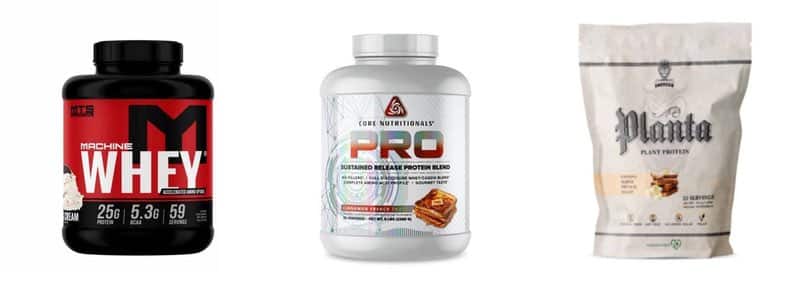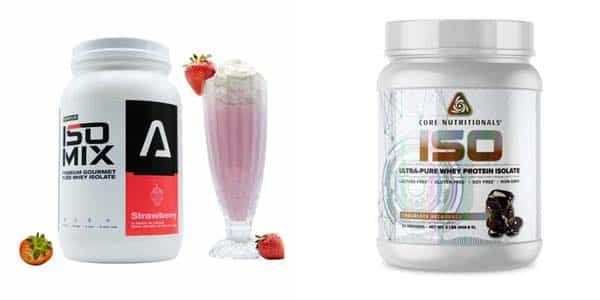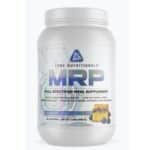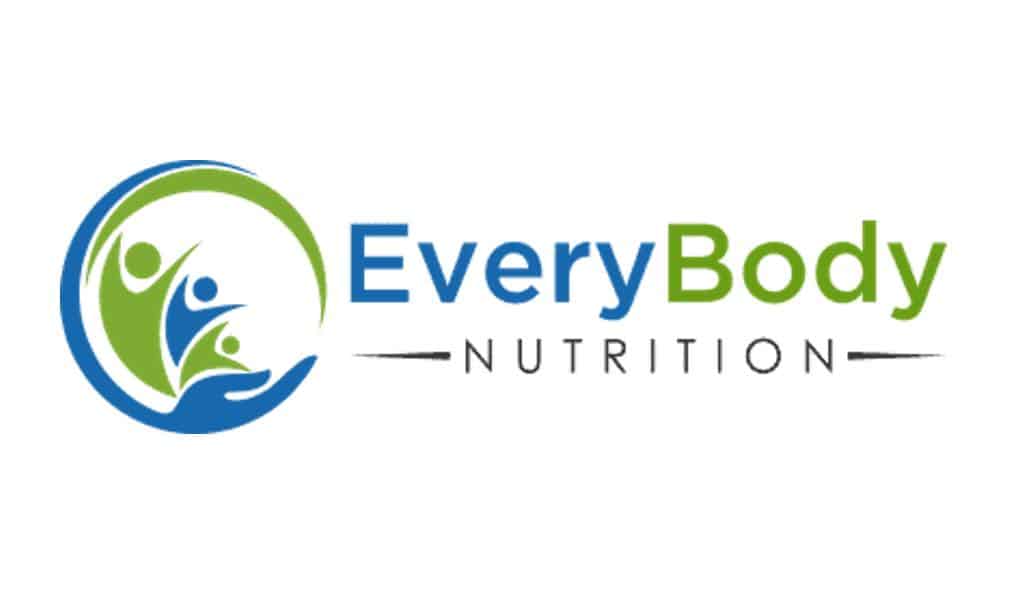Understanding different types of protein powders
As with most things, the “right” answer will depend on the specific questions asked, and the unique challenges and goals for each individual. In this article, we will review the range of scenarios, requirements, and outcomes, and options for best meeting the needs of each one so you can better decide what will be right for you.
Best protein powder for general use
Choosing the right protein powder can be a daunting task, especially for beginners navigating the diverse world of supplements. For general use, where versatility and effectiveness are key, whey protein stands out as an excellent choice. Derived from milk, whey protein is rich in essential amino acids, making it a complete protein source. Pending on isolate, concentrate or even casein, it is ideal for post-workout recovery, aiding in muscle repair and growth.
Exploring animal-based protein powders
Animal-based protein powders offer a spectrum of options catering to different preferences and dietary needs.

Whey Isolate Protein
Whey isolate protein, a byproduct of cheese production, is a popular choice due to its rapid digestion and absorption. It contains all essential amino acids, making it a complete protein source. Whey isolate is particularly effective for post-exercise recovery.
Whey Concentrate Protein
Whey concentrate protein is also a byproduct of cheese production, however doesn’t break down as quickly as whey protein isolate, thus controlling blood sugar longer. Many blended whey proteins contain a mixture of isolate and concentrate so you get the benefit of post-exercise recovery as well as sustained blood sugar levels.
Casein Protein
Derived from milk like whey, casein has a slower digestion rate. This makes it an excellent option for sustained amino acid release, making it suitable for use before bedtime to support overnight muscle repair.
Egg White Protein
Egg white protein is a high-quality, complete protein source without the fat and cholesterol found in egg yolks. It’s an excellent alternative for those with dairy allergies or lactose intolerance.
Collagen Protein
Collagen is a type of protein, sourced from animal connective tissues rich in the amino acids glycine, proline, and hydroxyproline. It supports joint health, skin elasticity, and may aid in recovery from connective tissue injuries.
Plant-based protein powders: A healthy choice
For those following vegetarian or vegan lifestyles, plant-based protein powders offer a wealth of options with ethical and sustainable benefits.

Pea Protein
Pea protein, derived from yellow peas, is rich in branched-chain amino acids (BCAAs) and is easily digestible. It’s an excellent choice for muscle building and suitable for those with allergies to soy or dairy.
Hemp Protein
Hemp protein is a complete plant-based protein that also provides essential fatty acids. It’s a sustainable option with a nutty flavor, making it a versatile addition to smoothies and recipes.
Brown Rice Protein
Brown rice protein is hypoallergenic and suitable for those with soy or gluten allergies. While it may not be a complete protein on its own, combining it with other plant-based sources can provide a full spectrum of amino acids.
Soy Protein
Soy protein is a complete protein source with a balanced profile of amino acids. It also contains phytoestrogens, which may have potential health benefits, particularly for heart health.
Factors to consider when choosing protein powder
Examining protein powder ingredients
Understanding the ingredients in your protein powder is crucial for making an informed choice.
Additives and Sweeteners
Some protein powders contain additives, artificial sweeteners, or excessive amounts of sugar. Consider products with minimal additives, and opt for natural sweeteners if flavor enhancement is necessary.
Allergens
If you have allergies or intolerances, carefully read the label to ensure the protein powder doesn’t contain any ingredients that may cause adverse reactions.
Importance of amino acids in protein supplements
Amino acids are the building blocks of proteins, and their presence in the right proportions is vital for various physiological functions.
Essential Amino Acids (EAAs)
Protein sources that provide all nine essential amino acids are termed complete proteins. Animal-based proteins and certain plant-based proteins, such as quinoa and soy, fall into this category.
Branched-Chain Amino Acids (BCAAs)
BCAAs, including leucine, isoleucine, and valine, are crucial for muscle protein synthesis. Protein powders rich in BCAAs are beneficial for muscle recovery and growth.
Evaluating protein powder quality and purity
Ensuring the quality and purity of your chosen protein powder is essential for safety and effectiveness.
Third-Party Testing
Look for products that undergo third-party testing for quality and label accuracy. This ensures that what’s on the label is actually in the product.
Manufacturing Practices
Choose protein powders from reputable companies that follow good manufacturing practices (GMP) to guarantee product quality and safety.

Popular protein supplements in the market
Reviewing top-rated protein powders
To simplify your decision-making process, here are reviews of some top-rated protein powders based on factors such as taste, effectiveness, and overall value.

- MTS Nutrition Machine Whey
Protein Source: Whey protein isolate and concentrate
Flavors: Wide variety
Pros: High protein content, excellent taste, mixes well - Core Nutritionals Core Pro
Protein Source: Whey protein isolate and concentrate
Flavors: Wide Variety
Pros: High protein content, excellent taste, mixes well
Cons: Too many Delicious flavors - Ambrosia Collective Planta
Protein Source: Brown Rice and pea
Flavors: Wide Variety
Pros: Highest protein/scoop in Vegan category, great tasting
Protein powders with smoothest texture
Texture can greatly affect the palatability of protein powders. Here are some options known for their smooth consistency.

- Core Nutritionals Core Pro ISO
Protein Source: Whey protein isolate
Flavors: Wide Variety
Pros: Smooth texture, easy mixability - Astro Flav ISO
Protein Source: Whey protein isolate
Flavors: Cookies & Cream , Strawberry
Pros: Smooth texture, easy mixability
Cons: Artificial sweeteners may be a drawback for some
Making the right choice for your fitness goals
Choosing protein powder for muscle gain
If your primary goal is muscle gain, selecting a protein powder with an emphasis on muscle protein synthesis and recovery is crucial.
Recommended Product: MTS Nutrition Machine Whey
Protein Source: Milk protein isolate and whey protein concentrate
Flavors: Wide Variety
Protein powders for weight management and fat loss
For those aiming for weight management or fat loss, a protein powder that supports satiety and boosts metabolism is beneficial.

Recommended Product: Core Nutritionals Core MRP
Protein Source: Whey protein concentrate
Flavors: Wide Variety
Pros: Full meal replacement at only 270 calories/serving
Cons: May not be suitable for people who are gluten intolerant as it contains oat flour as its carb source
Protein supplements for overall health and wellness
If you’re looking for a protein powder that has digestive enzymes.
Recommended Product: Core Nutritionals Core Pro
Protein Source: Whey protein isolate and whey protein concentrate
Flavors: Wide Variety
In conclusion, the world of protein powders is diverse, catering to various dietary preferences and fitness goals. When choosing the right protein powder, it’s essential to consider factors such as protein source, amino acid profile, ingredient transparency, and additional features that align with your individual needs. By exploring the different types of protein powders and understanding the factors influencing your decision, you can make an informed choice that supports your fitness journey effectively.
Frequently Asked Questions (FAQs)
How do I determine which type of protein powder is best suited to my dietary needs and fitness goals?
Consider factors such as protein source, amino acid profile, and digestibility when selecting a protein powder that aligns with your individual dietary requirements and fitness objectives.
What factors should I consider when evaluating the quality and purity of a protein powder, and how can I ensure that it’s safe and effective?
Look for certifications, ingredient transparency, and third-party testing to ensure the quality and purity of your chosen protein powder. These indicators can help you make an informed decision and ensure the safety and effectiveness of the product.
Are there any common allergens or additives that I should watch out for when choosing a protein powder?
Be mindful of potential allergens and additives in protein powders, such as soy, dairy, artificial sweeteners, and excessive sugar. Reading labels carefully and opting for products with minimal additives can help you avoid undesirable ingredients.
Can you recommend some reputable brands or products that undergo third-party testing and meet high-quality standards?
Seek out reputable brands known for their commitment to quality and safety, and consider products that undergo third-party testing for label accuracy and purity. Online resources and product reviews can also provide helpful insights into trusted protein powder options.
What are some considerations for selecting a protein powder based on specific fitness goals, such as muscle gain, weight management, or overall health and wellness?
Tailor your protein powder selection to your specific fitness goals by considering features or formulations that align with your objectives. Whether you’re focused on muscle gain, weight management, or overall health and wellness, choosing the right protein powder can support your efforts effectively.
Are there any additional features or ingredients, such as digestive enzymes or meal replacement properties, that I should look for in a protein supplement?
Explore protein powders with additional features or ingredients that may benefit your specific needs or preferences. Consider factors such as digestive enzymes or meal replacement properties, and choose products that align with your goals for optimal results.







